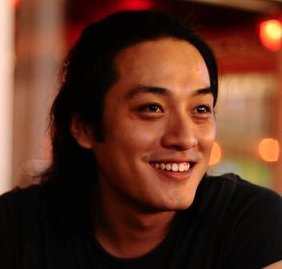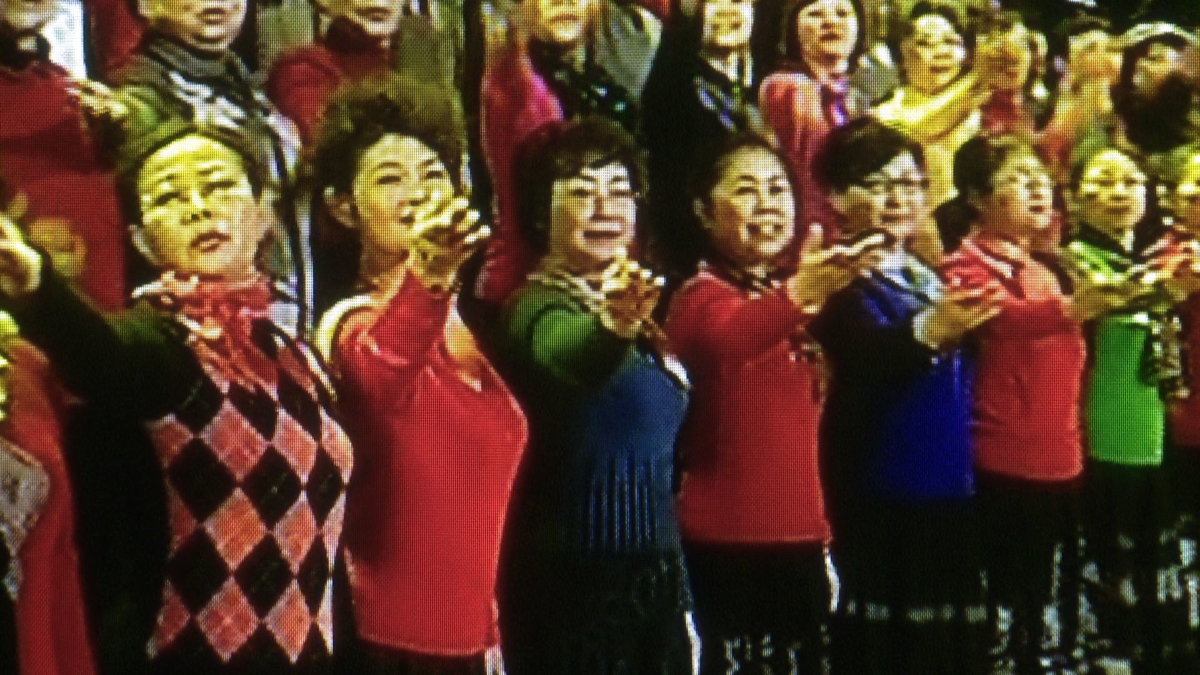In the summer of 2010 on a trip back home, Brooklyn-based photographer and video artist Bo Wang felt impelled to film the cultural political scene in Chongqing. It was the prime time for the Red Culture Movement, a campaign launched by Bo Xilai, the then Party chief of the municipality to recoup socialist morale and bash commercialism. Narrated in enigmatically accented English, CHINA CONCERTO comments on the social psychology that bolsters such a mass campaign. Through Bo’s lens, the video essay not only shows images of propaganda and collective activities perfectly embedded in the capitalized and globalized surface of China today, but also examines how individuals have linguistically and bodily merged with the spectacles. CineVue interviewed Bo on CHINA CONCERTO, which had its US premiere at The Museum of Modern Art last month and will play in GA this week.
[vimeo]http://vimeo.com/46192888[/vimeo]
CineVue: When and why did you conceive this project? How was it in Chongqing when you were filming there? After Bo Xilai’s scandal, how did the situation change in Chongqing?
Bo Wang: In the summer of 2010, when I first saw the spectacles of Bo Xilai’s red campaign, I could not stop thinking about making a film out of it. Later through my researches I realized what I was really interested in was not the phenomenon in Chongqing per se, but something more general that happened to be disclosed in the case of Chongqing. I actually haven’t spent much time on researching into the period after Bo Xilai’s downfall. There are posts about how symbols from Bo Xilai’s period have been silently removed. But I’d suspect how many real changes could happen.
CV: You use images and sequences from revolutionary films, official media, and everyday life. What are your personal memories being exposed to these images at the different stages of your life?
BW: There are a lot I can talk about my personal memories with propaganda images. Born in early 1980s, I grew up in the time of intense economic reforms. As a kid I did find revolutionary films, official media too cliched and boring. I would prefer a Disney cartoon or later a Schwarzenegger movie. The propaganda images seemed to belong to the never-turning-back past. Interestingly, as time went by, I felt more and more aware about their traces on the present lives. They are always there but with a different mask. Apparently from my film you can see my fascination on collecting these kinds of images. And to some extent, I don’t tend to distinguish political images and images as commodities. They are the same, in a certain sense.
CV: What is your observation of the propaganda discourse and collective affects in China, and the contradiction of the Chinese society?
BW: I think the scene of public performances is such a good model to understand the mechanism how propaganda and regulation on individuals work. It is obviously wrong to believe that people spontaneously join the dancings or singings because they do like the corny lyrics. They simply participate in the collective actions, for whatever reason, without admitting the content. Likewise, it would be too simple to believe today the regulations on individuals are manifested through making-believes.
CV: Both the voice-over of reading a letter addressed to someone else, as well as the reference to Antonioni’s China, pose questions of the reading position. Where did you find your position? What would you like your audience to walk away with after watching this piece?
BW: Very early on when I was thinking about structure of the film, I decided to focus on spectacles and images which I have full access to. To bring in a partially outsider’s point of view gives me full excuse to stay in that level without going further trying to explain the back-stories. And I am actually partially an outsider since I don’t live there any more for many years. To write the scripts in a foreign language, here English, is also a way to bring up contradictions that have been neutralized in the Chinese language. I’d say my position is kind of vague. The person who wrote the letters could be me, but not necessarily. To have a voice-over with a strong but un-identifiable accent for me is a way to suggest the position to be not so purely “Western”. I don’t think I have anything particular that I wish to give to my audiences through the piece. I’d like to hear how people respond.
CV: I have the impression that video arts in China arose in conjuncture with the country’s market reform and the increasing prevalence of the medium, and it also plays around the dual system of the commercial and the political. Are there any Chinese video artists, either politically committed, or artistically groundbreaking, that you look up to?
BW: There’re many great video artists in China but I feel hard to single out a few names. Personally speaking influences are always mixed together and how works of art have impacted me relies hugely on contexts. And I get as much inspirations from vernacular pieces as from artistic works. For instance, I always find those 24 hour on-going videos in the tiny windows of massage places in Chinatown really fascinating…
CV: When did you show the work in China? How was it received? Where else did you show the work to? Any intriguing reception?
BW: It was first shown in Beijing Independent Film Festival last August in Songzhuang, a artistic village outside of Beijing. The festival was forcefully shutdown by power outage on the day of opening. Since then the screenings had to be held privately in artists’ studios. I had 8 to 10 people in the audience when showing the film on the very last day. It was planned to be shown in China Independent Film Festival in Nanjing last November, but the festival was also suspended due to similar reason.
CV: Congratulations on your screening at MoMA! And the film will be also showing among the Chinese Independent exhibition that tours around multiple colleges in Atlanta. That’s very exciting. Any new project we should anticipate from you?
BW: Thanks! It was great experience to show film at MoMA. I have just started to plan on my next project. But the idea is still vague, I’d like to tell you more once it’s getting more clear!
 Bo Wang, born 1982 in Chongqing, China, is a visual artist currently based in Brooklyn, New York. Bo works mostly in photography, video and films. His photography project Heteroscapes takes records of the absurdity in the coexistence of rural culture, communist legacy and materialism in Chongqing in the era of intensified transition.Visit his website here.
Bo Wang, born 1982 in Chongqing, China, is a visual artist currently based in Brooklyn, New York. Bo works mostly in photography, video and films. His photography project Heteroscapes takes records of the absurdity in the coexistence of rural culture, communist legacy and materialism in Chongqing in the era of intensified transition.Visit his website here.

